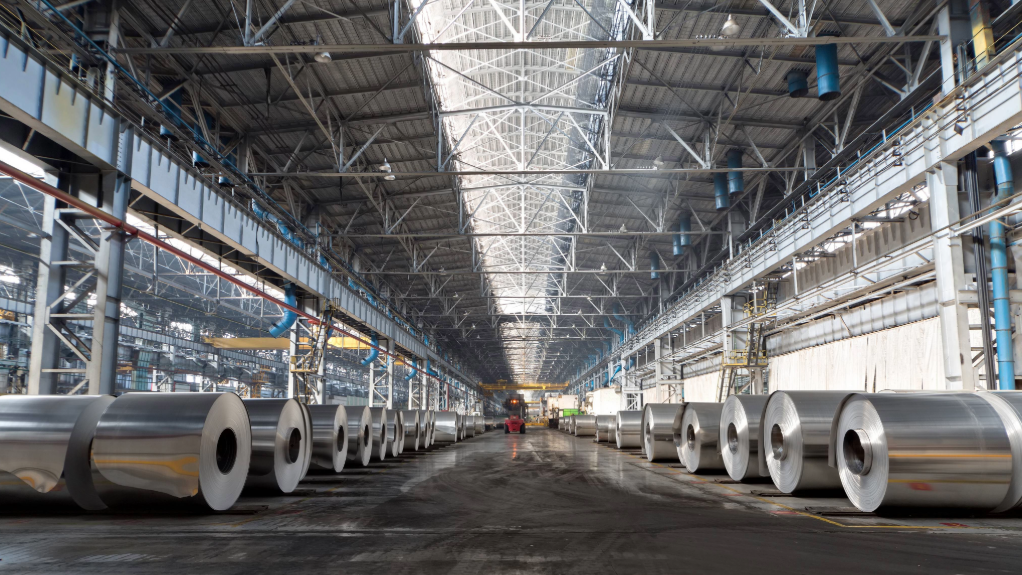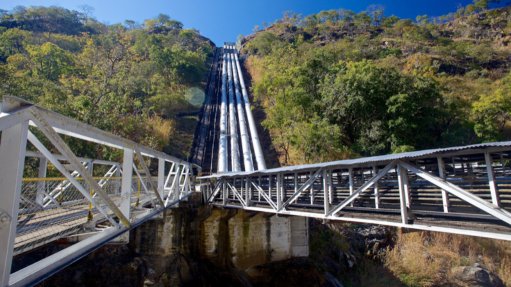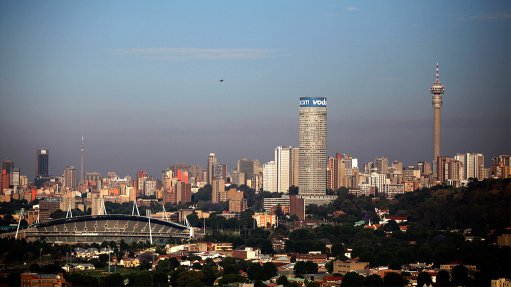Aluminium imperatives challenging to meet


ROLLING WITH RECYCLING The uptake of recycling in aluminium production has multiple benefits that should be explored
The South African aluminium industry faces many challenges, including the need for greater recyclability and the push for a greener, more reliable power supply, says semi-finished nonferrous metals supplier Metal & Tool Trade (MTT) MD and aluminium stalwart Volker Schütte.
He stresses that the South African aluminium sector’s viability is marred by its high CO2 footprint, which can be attributed to its using coal-fired power for processing and manufacturing activities.
“This brings with it potential penalties for exports to Europe, in relation to the Carbon Border Adjustment Mechanism (CBAM), which is planned to come into effect 2026.”
The CBAM will be a tariff on carbon-intensive products exported to the EU, he adds.
The CBAM directly affects the exports of cement, iron and steel, aluminium, fertilisers, electricity and hydrogen, and is equivalent to the carbon price of domestic production because these sectors are carbon-intensive and at most risk of carbon leakage.
Products made from recycled aluminium use about 80% less power than what is consumed during the production of new aluminium products, which “speaks volumes”, Schütte says, adding that, “in a country where electricity is mostly coal-fired, this could substantially decrease the carbon footprint”.
As a mitigator to the possible penalties that could be implemented in the near future, Schütte stresses that it has become part of MTT’s forward-thinking strategy to increase its uptake of recycled aluminium. He adds that the company will also ensure that the aluminium it procures from international clients will be ‘greener’.
“We plan to develop as much of a circular supply chain as possible going forward,” he states.
Slow and Steady
Schütte tells Engineering News that the aluminium sector remains one of the more consistent sectors globally, with very little fluctuation in growth and remaining on a steady growth trajectory of about 3% year-on-year.
He attributes this growth to congruous, persistent demand for aluminium across numerous sectors, including automotive, packaging, building, aerospace and, most importantly, the aluminium beverage-can market.
However, there is a notable disconnect between aluminium reclamation and recycling in South Africa, he stresses.
“As a country, we collect a substantial percentage of the used aluminium cans and scrap available; however, it is not being recycled in South Africa, it ends up being exported as scrap.”
The two largest aluminium producers in the country do not have the capability to use recyclable scrap aluminium to its full potential, as they use only between 15% and 17% of recyclable scrap on average.
By comparison, one of the largest aluminium producers in Europe uses between 70% and 80% scrap materials in its production.
“We need to understand that South Africa is behind the rest of the world in terms of a circular aluminium economy,” he adds.
A further challenge is the lack of support for, or even cognisance of, the needs of downstream end-product producers.
“Our aluminium producers are not filtering down their benefits to the local companies [and are instead] importing their materials because it works out cheaper in the long run.”
In comparison to the global industry, the South African consumption of aluminium has not increased over the last ten years. Should the above be addressed, local aluminium demand should increase, which will benefit producers and the downstream industry, Schütte adds.
Positive Prospects
Schütte says MTT is positive about the potential that the sector holds, should some of the challenges be addressed.
“With increased global competitiveness and greener production methods, aluminium can continue to grow at a steady and profitable rate.”
South Africa currently has duty-free entry into the European and US markets; therefore, it can compete with China and Europe “where supply is concerned”.
“At MTT, we strive to ensure that we have the capacity and network of suppliers on hand to provide our clients with not only the best grade of product but also the best price,” Schütte enthuses.
The company has dealerships on most continents and uses this to its benefit. It also has the capacity to maintain stockpiles for repeat clients, ensuring that lead times are kept to a minimum.
“We supply ex stock, we finance the material, we stock the material, and we take care of the exchange rates and metal fixation; we can also hedge the metal should the client require it,” concludes Schütte.
Article Enquiry
Email Article
Save Article
Feedback
To advertise email advertising@creamermedia.co.za or click here
Press Office
Announcements
What's On
Subscribe to improve your user experience...
Option 1 (equivalent of R125 a month):
Receive a weekly copy of Creamer Media's Engineering News & Mining Weekly magazine
(print copy for those in South Africa and e-magazine for those outside of South Africa)
Receive daily email newsletters
Access to full search results
Access archive of magazine back copies
Access to Projects in Progress
Access to ONE Research Report of your choice in PDF format
Option 2 (equivalent of R375 a month):
All benefits from Option 1
PLUS
Access to Creamer Media's Research Channel Africa for ALL Research Reports, in PDF format, on various industrial and mining sectors
including Electricity; Water; Energy Transition; Hydrogen; Roads, Rail and Ports; Coal; Gold; Platinum; Battery Metals; etc.
Already a subscriber?
Forgotten your password?
Receive weekly copy of Creamer Media's Engineering News & Mining Weekly magazine (print copy for those in South Africa and e-magazine for those outside of South Africa)
➕
Recieve daily email newsletters
➕
Access to full search results
➕
Access archive of magazine back copies
➕
Access to Projects in Progress
➕
Access to ONE Research Report of your choice in PDF format
RESEARCH CHANNEL AFRICA
R4500 (equivalent of R375 a month)
SUBSCRIBEAll benefits from Option 1
➕
Access to Creamer Media's Research Channel Africa for ALL Research Reports on various industrial and mining sectors, in PDF format, including on:
Electricity
➕
Water
➕
Energy Transition
➕
Hydrogen
➕
Roads, Rail and Ports
➕
Coal
➕
Gold
➕
Platinum
➕
Battery Metals
➕
etc.
Receive all benefits from Option 1 or Option 2 delivered to numerous people at your company
➕
Multiple User names and Passwords for simultaneous log-ins
➕
Intranet integration access to all in your organisation


















